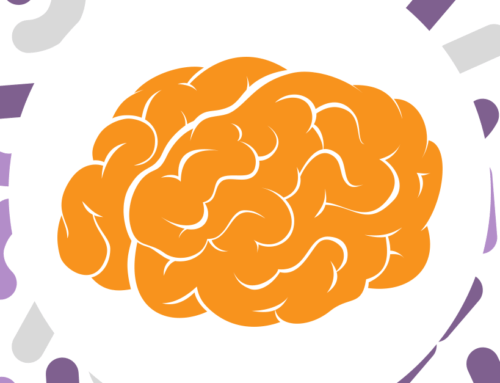My Top 5 Tips on How to Detox Using Your Gut Microbiome
Detoxing is a big topic these days. Everyone wants to know how to detox. But what does it really mean to detox? Well, it means getting rid of the bad stuff and putting in the good stuff. It’s not entirely that simple but that is the basic concept to keep in mind. There are a few ways to help get the bad stuff out, besides not being exposed to the bad stuff. Three of the main ways that someone can flush the bad stuff out is via the digestive tract, urinary tract, and sweat. Of these three systems, the digestive tract is one of the most powerful. Why? Because the digestive tract is home to the gut microbiome, the ecosystem of trillions of bacteria, viruses, and fungi that live together with us, in sickness and in health.
The gut microbiome has been shown to have the ability to degrade chemicals and toxins such as pesticides (https://www.ncbi.nlm.nih.gov/pubmed/29072801). In humans, chemicals such as plastics, pesticides, fertilizers, electronic waste, and food additives that are endocrine disrupting chemicals are felt to be associated with the growing rate of diabetes and obesity. An endocrine disrupting chemicals is basically a chemical or substance that disrupts the normal hormone balance in your body and throws things off. As a result, you suffer negative health effects such as diabetes, obesity, and a whole number of other conditions. We know that the gut microbiome, metabolizes these toxins (https://www.ncbi.nlm.nih.gov/pubmed/28571659). This is such an important topic that I wrote a book chapter in the textbook of Integrative Environmental Medicine (https://global.oup.com/academic/product/integrative-environmental-medicine-9780190490911?cc=us&lang=en&) on this very topic: how the gut microbiome is involved and influenced by diet and environmental toxins.
Why should you care about all this? Well, what the gut is exposed to is very important. This is because when the gut microbiome gets imbalanced, various different diseases and conditions can occur such as Crohn’s Disease or Inflammatory Bowel Disease (https://www.ncbi.nlm.nih.gov/pubmed/27876802). When the detox capability of the gut microbiome is on point, then maybe we are ok. However, when the detox capability of the gut microbiome is off, as a result of an imbalance, then we may suffer negative health effects. It’s like having a well-oiled machine that doesn’t work as well as it could because the parts used to build that machine are lower quality. If our gut microbiome is bombarded with toxins, we may reduce the quality of our detoxification systems and we may alter the composition of the ecosystem that could subsequently leave us vulnerable to other changes, effects, and conditions.
So, what should we do? How can we maximize our gut’s detoxification capabilities? Here are my top 5 tips:
- It makes the most sense to try to reduce and avoid toxins. There won’t be as much stress on the system if the load is not as large. This means using clean cosmetic products, cleaning supplies, cooking tools, and most importantly it means eating clean.
- Eat plants. Plants have a lot of nutritional benefit, chemicals, vitamins, and anti-oxidants. This will help us in our never ending detoxification endeavors. Some of my favorites are dandelion greens, celery, swiss chard, cilantro, broccoli, green tea, oolong tea, turmeric, ginger, and berries.
- Eat clean foods. This means avoiding processed and packaged foods. These foods generally contain food chemicals that are meant to improve shelf life and make the product “look nice” for as long as possible. While these chemicals often accomplish the goal of the company, it exposes our microbiome to extra unnecessary chemicals.
- Avoid unnecessary antibiotics. Antibiotics can be life-saving. They should be used but in the appropriate setting. Often, antibiotics are over-prescribed and being given for viral infections or other self-limited conditions that do not require antibiotics. What happens is that we also kill the good bacteria when we take a broad spectrum antibiotic and some of these effects can be long lasting on our inner ecosystem.
- Ensure regular bowel habits. If we are not going #2 on a regular basis, we impair the gut’s detoxification abilities. Some of the bacteria can take a detoxified chemical and make it a toxin again if it sits around too long. We want to make sure we have at least one or two regular, soft, formed bowel movements every day. The saying “better out than in” never made more sense! If you eat cleaner, increase your fiber intake, drink plenty of water, and optimize your lifestyle choices, you will find that the bowel habits just come along as part of the process. For those of you who need a bit of a boost, that’s okay too; my only suggestion would be to work with someone who is well versed in digestive conditions to optimize your choices in things you can use. Sometimes a prebiotic and probiotic supplement can help; speaking to your health care provider about which ones may be best for you is important.
We live in a toxic world. That’s just a matter of fact. Everywhere we turn or look, I would bet you could find toxins. However, this is not something to fear. We have to live our lives in this modern world. So, the point is not to be scared of everything. The point is to learn how to maximize that detoxifying machine in our digestive tract and help it do the job it was meant to do, the job it wants to do. If we build a resilient and diverse gut microbiome with all the arsenal it needs to fight off the bad toxins, we will be ready (as best as we can) to handle the common threats that come into our everyday lives.


